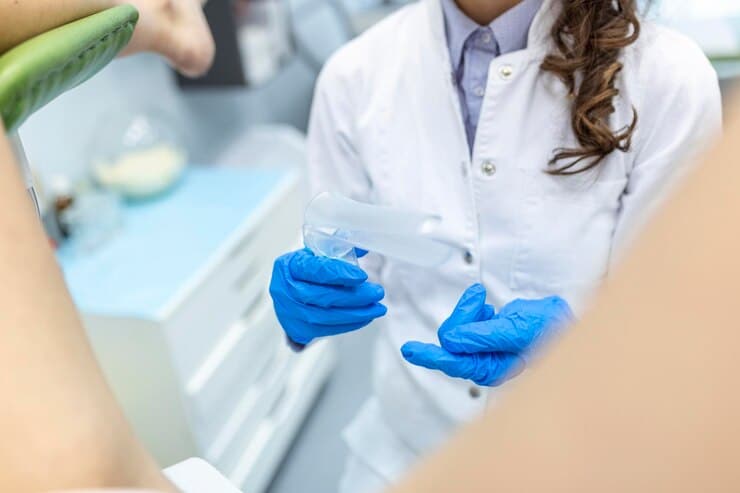The Pap smear is an essential investigation for any woman’s health and one that should be performed periodically. In this article you will learn not only why it is so important to take this test, but also what rules you must follow before taking it.
What is the pap smear and what is its role?
test Pap or Babeș-Papanicolau (PAP) is an investigation used mainly for the early detection of cervical cancer, allowing the timely identification of possible changes in the cervical cells that could evolve into cancer. In other words, it is a screening method that allows cervical cancer to be prevented or detected in its early stages, when the chances of cure are the highest.[1]
In general, doctors recommend that any woman between the ages of 21 (or earlier if she has already started having sex) and 65 years of age get this test every 3 to 5 years (depending on your medical history, age the patient and why other tests are performed). However, it is advisable to talk to your doctor to find out if you need a PAP test and how often you should have it. There are, for example, certain situations in which it is recommended to perform this test at smaller intervals, such as when there is a diagnosis of cervical cancer or when a previous Pap test revealed precancerous cells.[1][2]
You may also need more frequent Panicola tests if you have an HIV infection, had chemotherapy or drug treatment that affected your immune system, were exposed to certain drugs before birth, or smoke.[1][2]
There are also situations where it may be decided that repeating these tests is no longer necessary. This is the case, for example, of women who have undergone a hysterectomy for non-cancerous conditions or those who are over 65, provided that previous test results are normal.[2]
However, the recommendations may vary from one woman to another, depending on other factors. That is why it is advisable to discuss this topic with your doctor.
What should you do before a Pap test?
The first thing you need to know is that the Pap test should not be scheduled during menstruation because it can affect the accuracy of the results. For the same reason, it is recommended to avoid sexual contact 48 hours before the test, as well as the use of products such as eggs, tampons, spermicides or vaginal creams. Vaginal washing is also not indicated.[1][2]
If you haven’t had this test before, it might be a good idea to talk to your doctor to find out exactly what to expect during the test and what to do or avoid in the days leading up to it. This will help you feel more relaxed during the procedure, which will also make taking the test easier and can help reduce physical and mental discomfort.
The Pap test is essential for the health of any woman, helping to reduce the risk of developing cervical cancer. That is why it is recommended to carry out this test periodically, starting from the age of 21 or after starting sexual life. Although it may cause some discomfort and there is a small risk of false-negative or incorrect results, the test is not painful and is considered safe, and the benefits it has for your health are very important.[1][2] Talk to your gynecologist to find out if you need this test and how often you should schedule it.
Bibliography:
„Pap Smear”, WebMD, 8 Mar. 2017, www.webmd.com/women/pap-smear.
„Pap Smear”, Mayo Clinic2022, www.mayoclinic.org/tests-procedures/pap-smear/about/pac-20394841.
2023-09-10 14:17:42
#Pap #test #important #prepare #SuceavaLIVE

